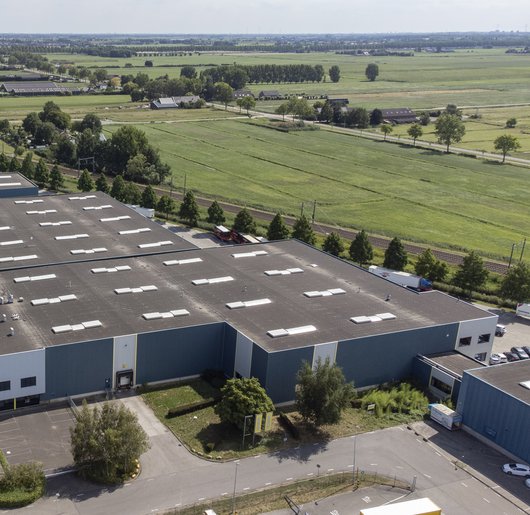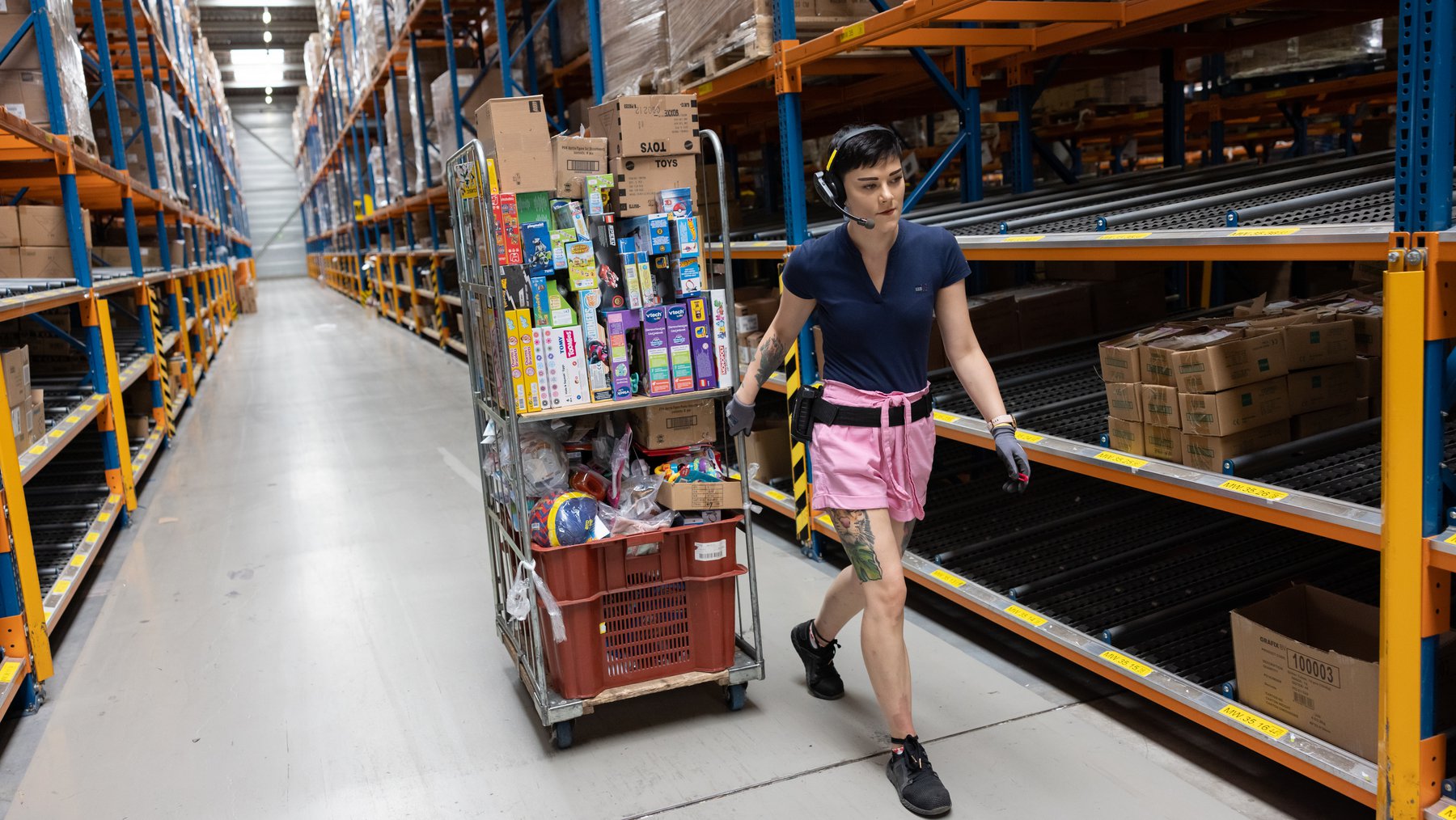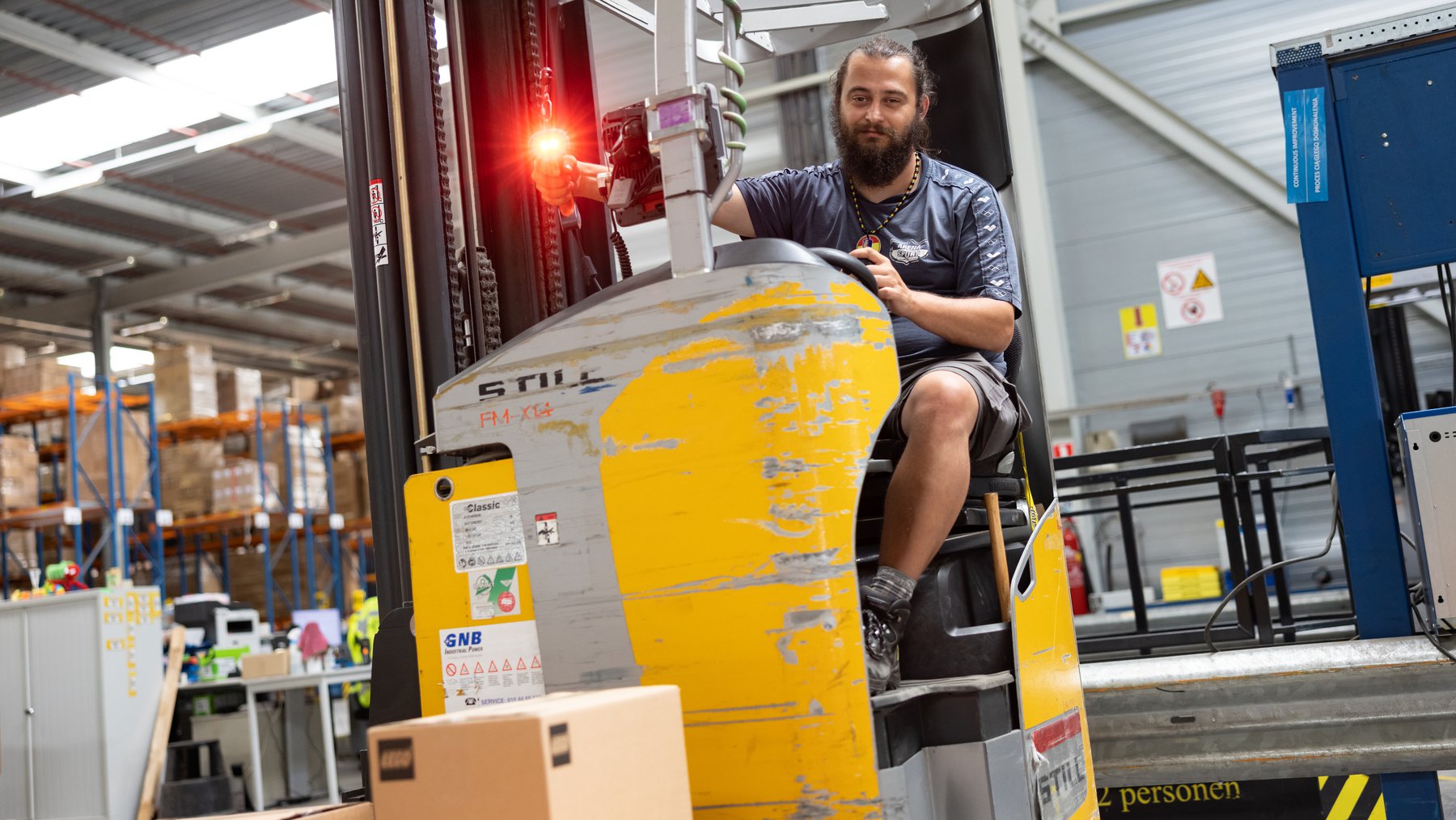Completely paperless
Renewing its Locus WMS wasn’t a given. The Intertoys IT team looked at a variety of warehouse management systems, but in the end they went for Centric’s solution once again. “Centric’s people are masters of retail and logistics. And they are able to think out of the box, which is something I’m personally very enthusiastic about. That’s why we chose Locus WMS once more.
It means that we now have a completely paperless operation, which saves us no less than 90,000 kilos of paper a year.”
Now that the new version has been in use for five months, Van Keulen has seen the quality improve tremendously. “We first noticed it in the e-commerce department, where we package and ship online orders. Everything we collect into batches and pass on to that department is correct. Our franchisees are delighted with the better quality too. They receive
a message in advance about the content of the roll containers and can now rely on the information being correct. This saves a lot of sorting out in the stores, which is very welcome now that staff availability is under pressure.”
Control tower
Operational management was changed at the same time as the new version was implemented. The distribution centre now has a control tower from where the operation is managed by means of Locus WMS. “Before this, the managers controlled operations from the work floor. They received a pile of pick lists and distributed them to the workers. If a pick list was too long, they sometimes tore it in half. Last year we processed seven million order lines using this method. Now the whole process is controlled by the team in the control tower. They monitor progress and make adjustments where necessary. It gives us much more control of operations.”
Van Keulen has seen productivity rise at the same time: because order pickers receive their instructions through their headsets, they have their hands free and they don’t have to spend as much time looking for pick locations. And once they have found the right pick location, they can be confident that there will be sufficient stock to pick. “In the past, pick locations were often empty and an order picker had to wait until the stock had been replenished. We are now seeing a ten percent increase in productivity. That's a lot, so soon after going live. And there’s more to come: we can do even better now we have the control tower.”



